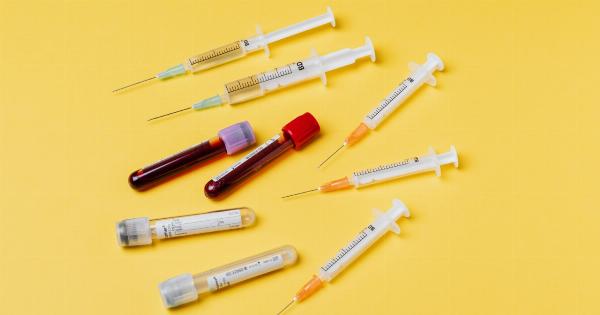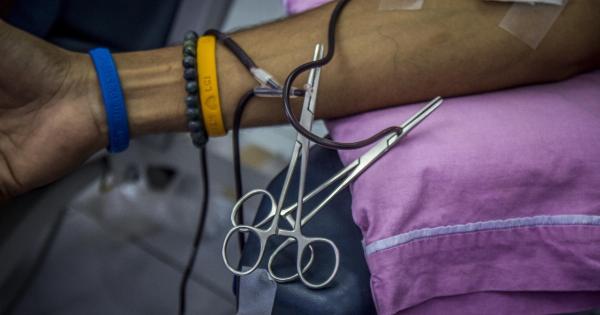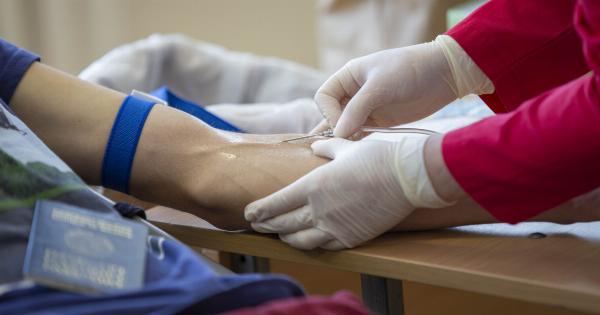Blood is an essential component of the human body, and its importance cannot be overemphasized. In medicine, blood is seen as a precious gift that can save lives.
Some people need blood transfusion due to injuries, surgeries, or illnesses that require more blood than their body can provide. Blood transfusion gives them a chance to live, recover, and become healthy again. However, blood transfusion is only possible when there’s a supply of blood to meet the increasing demand.
In many countries, the demand for blood is higher than the supply, which can be problematic for hospitals and patients. For this reason, blood donation is essential to meet the increasing need for blood transfusion.
Blood donation is a voluntary act of giving blood to save someone else’s life. It requires no special skill, but it can be one of the most rewarding things someone can do for society.
The Benefits of Voluntary Blood Donation
Voluntary blood donation has numerous benefits both for the donor and the recipient. Some of these benefits include:.
1. Saving Lives
The primary benefit of voluntary blood donation is the opportunity to save someone else’s life. Blood transfusion is critical in emergency situations, surgeries, and treatments for cancer and blood-related diseases.
By donating blood, you are giving someone a chance to recover, become healthy again, and live a normal life.
2. Health Benefits for Donors
Blood donation has numerous health benefits for donors. According to the American Red Cross, donating blood can reduce the risk of heart disease, reduce the risk of certain cancers, and improve blood flow.
Additionally, donating blood can help identify potential health issues, such as high blood pressure or low iron levels, which can be treated promptly.
3. Saving Costs
Blood donation can help save costs for patients and hospitals. According to the World Health Organization, blood transfusion accounts for a significant portion of hospital expenditure.
By donating blood, you are helping reduce the cost of healthcare and making blood transfusion affordable for patients.
4. Building a Sense of Community
Blood donation can help build a sense of community and bring people together. Blood donors come from all walks of life and different cultures, but they share the common goal of saving lives.
By donating blood, you are contributing to the well-being of society and creating a bond with other donors and recipients.
Who can Donate Blood?
Not everyone can donate blood, and there are specific requirements to ensure the safety of donors and recipients. Some of the requirements for blood donors include:.
1. Age
Donors must be at least 17 years old. However, some countries allow people as young as 16 to donate blood with parental consent.
2. Weight
Donors must weigh at least 110 pounds or 50 kilograms.
3. Health
Donors must be in good health and not have any serious medical conditions. Some medical conditions that can disqualify a donor include HIV/AIDS, hepatitis B and C, and certain cancers.
4. Medications
Some medications can disqualify a donor, while others may require a waiting period before donating blood. It’s essential to disclose any medications you are taking to the healthcare professional conducting the blood donation process.
5. Travel history
If you have traveled to certain countries with a high risk of infections, you may be disqualified from donating blood. Additionally, some countries may require a waiting period after travel to prevent the transmission of infections.
The Process of Blood Donation
The process of blood donation is simple, safe, and usually takes between 20 to 45 minutes. It involves several steps, including:.
1. Registration
Donors must register with the blood donor center or mobile blood donation clinic.
The registration process involves filling out a donor registration form and answering some health-related questions to ensure the donor meets the eligibility requirements.
2. Medical Screening
After registration, the donor undergoes a medical screening process. The screening process involves checking vital signs such as blood pressure, hemoglobin levels, and temperature.
Additionally, the healthcare professional will ask about the donor’s medical history, medications, and travel history.
3. Donation
Once the donor passes the medical screening process, the actual donation process begins. The healthcare professional will place a sterile needle in the donor’s arm to collect blood for the donation.
The donation process typically takes between 10 to 15 minutes.
4. Refreshments and Rest
After the donation process, donors are encouraged to rest for about 10 to 15 minutes. Additionally, they are provided with refreshments such as juice, water, and snacks to help replenish fluids and nutrients lost during the donation process.
Conclusion
Voluntary blood donation is a critical aspect of healthcare and a way for individuals to make a meaningful contribution to society. Blood transfusion saves lives and brings hope to patients battling illness or injury.
By donating blood, you are making a significant impact on someone’s life and wellbeing. If you are eligible to donate blood, consider reaching out to a blood donation center or mobile clinic near you and making an appointment to donate today.



























